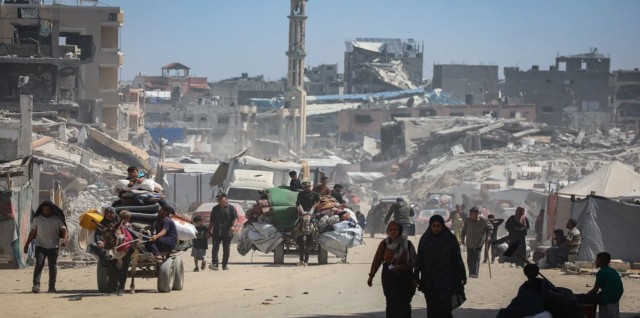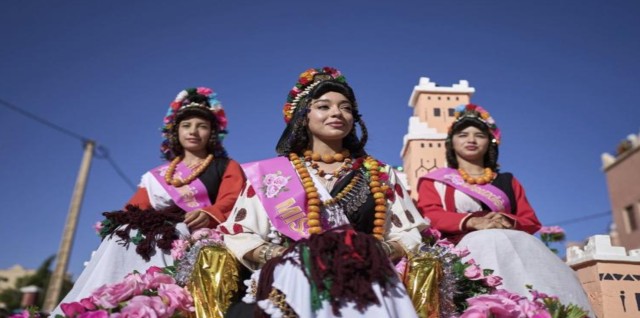
In this July 28, 2013 file photo, a United Nations peacekeeper is seen guarding a polling station in Kidal, Mali, which is covered with separatist flags and graffiti. AP Photo
On Sunday, a series of airstrikes targeted a village in northern Mali, near the Algerian border, resulting in the deaths of 21 civilians, including 11 children. The strikes hit Tinzaouatine, a village under the control of a coalition of Tuareg-majority pro-independence groups. This tragic incident is being reported as the deadliest drone attack on civilians in Mali since the collapse of a peace agreement last year between the country’s ruling military junta and armed pro-independence factions.
The coalition, known as the Strategic Framework for the Defense of the People of Azawad, represents groups seeking independence for northern Mali, which they call Azawad. According to a statement from Mohamed Elmaouloud Ramadan, the spokesperson for the coalition, the airstrikes first hit a local pharmacy and then targeted people who had gathered around the damaged area. The statement detailed that the attack resulted in the deaths of the pharmacy manager, numerous injuries, and significant material destruction.
In response to the incident, Mali’s armed forces confirmed that airstrikes occurred in the Tinzaouatine sector on August 25, 2024. They stated that these strikes were aimed at terrorists. This confirmation came after weeks of intense conflict in the region. Recently, Tuareg rebels and fighters from Jama’at Nusrat al-Islam wal-Muslimin, an al-Qaida-linked group, had defeated Malian army forces and Russian mercenaries from the Wagner Group.
The use of airstrikes by Malian forces and Russian mercenaries, particularly drones, has been intensified in the wake of their recent setbacks. According to Rida Lyammouri, a senior fellow at the Policy Center for the New South, the increased reliance on airstrikes, including those that affect civilians, is a response to their diminished ground presence in the Kidal region. This escalation is seen as a form of retaliation following significant defeats in northern Mali.
The situation in Mali remains volatile, with the use of drones and airstrikes continuing to impact civilian areas. The international community is closely monitoring the situation, as the ongoing conflict and the rise of such deadly attacks raise serious concerns about the safety and well-being of civilians caught in the crossfire.















